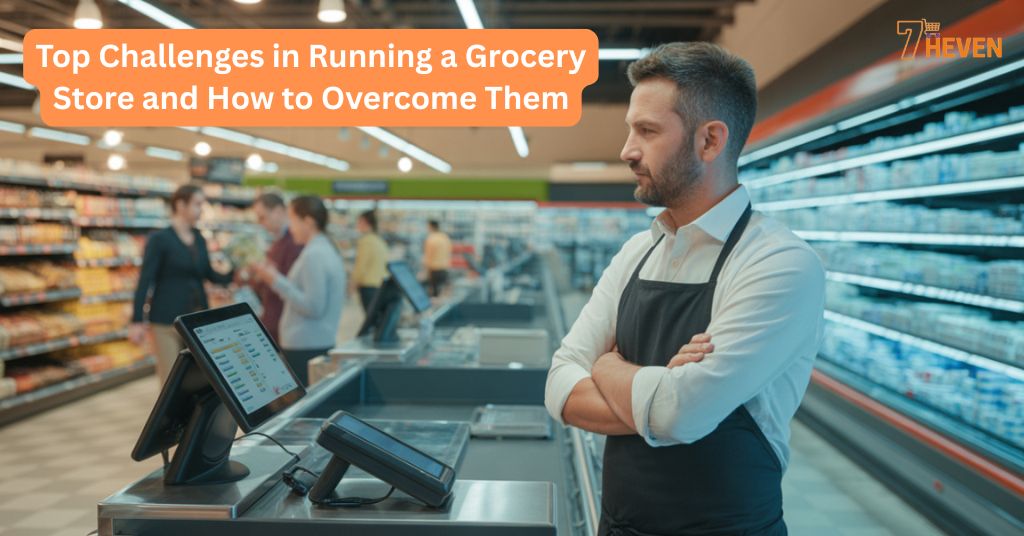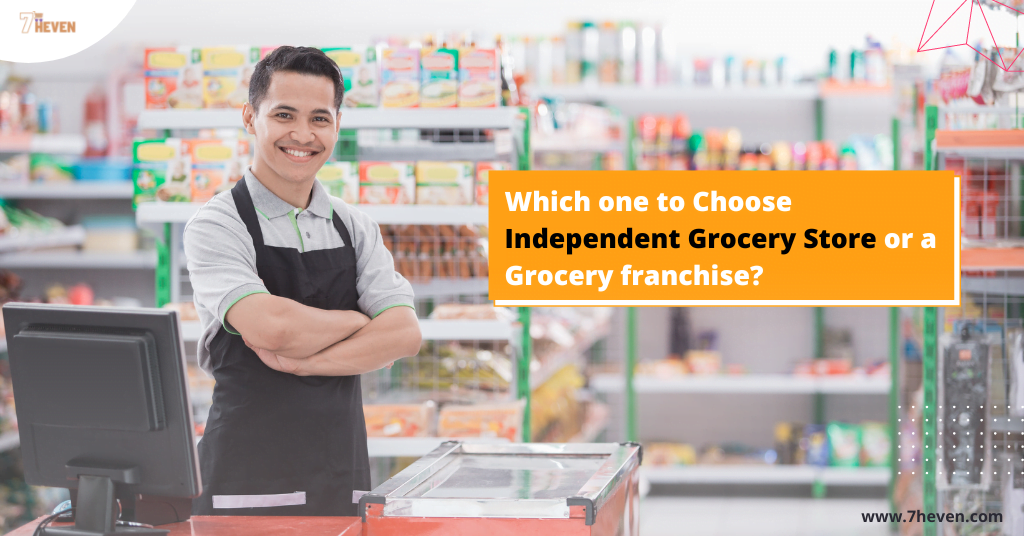Top Challenges in Running a Grocery Store, and How to Overcome Them
Whenever it comes to running a grocery store, it might look simple from the outside, shelves stocked, customers buying essentials and the cash register ringing. However, there’s a complex network of operations if we have a look at behind the scenes. And, it needs constant attention. From inventory control to staff management and customer habits that’s really always changing, every aspect needs precision. In this blog, we’ll walk you through the top challenges grocery store owners face and share practical, real-world solutions to overcome them, and help you build a smooth and profitable business. Top 10 Challenges in Running a Grocery Store (and How to Solve Them) Operating a grocery business in India involves juggling multiple moving parts, suppliers, customers, employees, and compliance. Let’s look at the most common challenges in running a grocery store and how you can turn them into growth opportunities. 1. Inventory Management: Balancing Shortage and Surplus Challenge: One of the biggest problems in grocery store management is maintaining the right stock level. Overstocking leads to product wastage, especially for perishables, while understocking causes lost sales and dissatisfied customers. Solution: Implement a POS (Point of Sale) system that tracks daily sales and identifies top-selling products. Use the First-In-First-Out (FIFO) principle to manage perishable items. Review sales data weekly and create reorder alerts for high-demand products. Maintain seasonal inventory for festivals and regional preferences. Also Read This : How to Optimize Inventory Management for Your Supermarket Franchise 2. Price Fluctuations and Margin Pressure Challenge: In India’s competitive retail sector, wholesale price variations and big-brand discounts often squeeze small store margins. Balancing profitability while staying affordable is tricky. Solution: Partner with multiple suppliers and negotiate long-term deals to stabilize costs. Introduce combo offers or private label products to increase profits. Revisit pricing quarterly to match market trends without compromising quality. Offer bundle deals to move slow-moving items faster. 3. Staff Management and Training Challenge: Untrained or high-turnover staff can affect billing speed, customer experience, and overall productivity. Many small stores fail because of weak human resource management. Solution: Conduct regular staff training on customer handling, billing, and hygiene. Create a reward system to retain employees and motivate good performance. Document Standard Operating Procedures (SOPs) for all repetitive tasks. Cross-train employees to handle billing, restocking, and packaging efficiently. 4. Maintaining Product Quality and Freshness Challenge: Customers expect quality and freshness every time they visit your store. Spoiled or expired goods can severely damage your reputation. Solution: Schedule daily freshness checks for fruits, vegetables, and dairy. Maintain temperature control for frozen and chilled items. Source from trusted local suppliers and ensure consistent delivery schedules. Use clear labeling with expiry and manufacturing dates for transparency. 5. Adapting to Changing Consumer Trends Challenge: The modern Indian consumer is tech-savvy, health-conscious, and demands convenience. Trends shift rapidly, from organic food to contactless payments. Solution: Add organic, gluten-free, and healthy food sections to your store. Offer home delivery or WhatsApp order service for regular customers. Analyze customer purchase history to understand preferences. Stay active on social media and Google Business to build trust locally. 6. Technology and Digital Competition Challenge: With e-commerce and quick-commerce apps offering 10-minute deliveries, traditional stores face immense competition. Solution: Use ERP or POS software to automate billing, inventory, and analytics. Create a simple online presence, through a Google Business Profile or local app listings. Offer click-and-collect or home delivery options. Send digital offers via SMS or WhatsApp to stay connected with your local audience. Read More : How 7Heven’s Digital Tools Boost Franchise Efficiency 7. Supply Chain and Vendor Management Challenge: Frequent delays from suppliers can create out-of-stock situations, affecting customer trust and daily sales. Solution: Diversify your vendor network instead of depending on one supplier. Use reorder reminders or automated alerts for critical items. Keep a small safety stock of top-selling essentials like rice, oil, and packaged foods. Conduct regular vendor evaluations to ensure consistent supply and quality. 8. Regulatory and Legal Compliance Challenge: Navigating FSSAI registration, GST filings, and municipal permits can be overwhelming for small business owners. Solution: Get your FSSAI license, GST registration, and shop license early. Maintain digital records of invoices and transactions.Schedule license renewals before expiry to avoid penalties. Follow health, safety, and hygiene standards to meet compliance. 9. Marketing and Customer Retention Challenge: Acquiring new customers is tough, retaining them is tougher. Many stores fail because they don’t engage their regular buyers. Solution: Start loyalty programs offering reward points or cashback on repeat purchases. Promote discounts, combo deals, and memberships during festive seasons. Engage customers through local WhatsApp groups, flyers, or community events. Collect feedback regularly and respond quickly to complaints. 10. Managing Operating Costs Challenge: Rising rent, utilities, and manpower costs reduce profitability, especially in metro and Tier-1 cities. Solution: Invest in energy-efficient lighting and refrigeration systems. Use automated tools for accounting and stock control. Outsource delivery to reduce operational burden. Review expenses monthly and cut avoidable overheads. How Franchising Simplifies These Challenges Many grocery entrepreneurs overcome these hurdles by choosing structured franchise models instead of running everything independently. A supermarket franchise provides ready solutions for common problems like inventory management, supplier coordination, and marketing. 7Heven, one of India’s fastest-growing supermarket and grocery franchise brands, offers complete assistance, from store setup and staff training to supply chain, branding, and backend technology. With established systems in place, franchise owners can focus on customer service and business growth instead of daily firefighting. Conclusion: Turning Everyday Challenges into Growth Opportunities So, running a grocery store is a daily balancing task among costs, quality and customer satisfaction. While challenges are inevitable, the right systems, technology, along with planning can even transform them into opportunities for growth. When you understand your customer, train your team, and use modern retail tools you can truly build a profitable and sustainable grocery business. And, if you’re looking to simplify your operations with professional guidance, a trusted franchise partner like 7Heven can truly help you run smarter and scale faster.
Top Challenges in Running a Grocery Store, and How to Overcome Them Read More »


